Technology is the foundation
At the seminar: "Innovation and creativity in the pharmaceutical and medical fields: Breakthrough in caring for and improving people's health" recently organized by the Finance - Investment Newspaper, Mr. Le Xuan Tan, General Director of TNH Hospital Group Joint Stock Company said that digital transformation is a vital task, especially for private hospitals if they want to compete with public hospitals.
 |
| Delegates attending the Financial - Investment Newspaper Seminar. |
Currently, TNH has completed the electronic medical records of the entire system before the deadline set by the Prime Minister (September 30), and at the same time deployed modern management systems such as HIS, LIS, PACS, helping to connect diagnostic imaging, testing, and patient data quickly. "In the morning we can receive thousands of examinations but no one has to wait until the afternoon," Mr. Tan affirmed.
Not only investing in core technology, TNH is applying artificial intelligence (AI) in medical examination and treatment activities. The hospital has tested an AI solution that records the dialogue between doctors and patients, thereby automatically integrating test results, supporting doctors to diagnose faster and more accurately. "In the future, we will build facial recognition software for staff and patients to improve security and save time for attendance and check-in," said Mr. Tan.
With a vision to 2030, TNH aims to develop 10 hospitals with 2,000 beds, covering all regions from mountainous areas, midlands to large cities. “We invest steadily step by step, doing one hospital well before doing the next. This is a long-term game but full of opportunities,” said the TNH leader.
It is known that the TNH system has been operating for 10 years with 3 existing facilities: 2 hospitals in Thai Nguyen and 1 hospital in Bac Giang (now Bac Ninh). It is expected that by the end of this year, the fourth hospital in Lang Son will officially come into operation, bringing the total number of hospital beds of the group to about 800.
TNH invests heavily in facilities, with a system of treatment rooms and hospital beds that meet the standards of a 4-star hotel. Modern medical equipment includes: magnetic resonance imaging (MRI), computed tomography (CT), endoscopy systems for early cancer detection, especially a testing system that meets ISO 15189 version 2022 - the latest version currently.
In terms of human resources, the hospital focuses on recruiting a team of highly qualified doctors, nurses, midwives and technicians, while also promoting a professional and dedicated service attitude towards patients. Thanks to that, the TNH system is currently receiving about 2,000 visits per day across the system. TNH Thai Nguyen International Hospital alone is the unit with the highest number of visits in the province.
At Melatec Healthcare System, Mr. Bui Le Ha, Director of Digital Transformation Center, Medlatec General Hospital also emphasized that technology is an indispensable foundation. Melatec is currently present in all provinces and cities, with 1 general hospital, 41 clinics and 100 testing points nationwide. “Without heavy investment in technology, it is impossible to operate such a large system,” Mr. Ha affirmed.
Melatec has chosen three pillars for development: diagnostic imaging, testing and improving the digital experience for patients. Management systems such as HIS, LIS, PACS are all built by internal engineers - "make by Melatec", helping to fully master the core technology. In addition, there is a customer behavior analysis system (CRM, CDP), an application for scheduling appointments - tracking health records for patients ("My Melatec") and an application dedicated to doctors ("Doctor Melatec").
Melatec also promotes home services such as testing and family doctor visits, helping people reduce travel time, especially suitable for the elderly or busy people.
Thanks to the extensive application of technology, the waiting time for examination and results at Medlatec has been reduced to only 30% compared to before. X-ray service returns results within 30 minutes, other tests are available the same day. Customer satisfaction rate reaches 90%.
“We have proven that technology does not increase costs for patients, but on the contrary, it saves time and is much more convenient,” said Mr. Ha.
Solving the problem of initial investment costs
Both companies assert that technology is a prerequisite for promoting development, but both units admit that digital transformation is initially very costly. “The most difficult thing is to prove economic efficiency,” said Mr. Ha.
Melatec chose to change the operating process first, then proceed to digitalization to avoid repeated modifications. All changes are tested at one facility first, and if successful, then replicated. Medlatec considers digital transformation as the whole organization's business, not just the IT department's.
At TNH, Mr. Le Xuan Tan said the hospital has proactively "reasured" shareholders that medical investment is a long-term investment, the first year may not be profitable, but in the following years it will be possible to achieve a profit of 30%.
“Private hospitals must be better than public hospitals in terms of technology, equipment, facilities and most importantly, service attitude. That is what makes the difference,” Mr. Tan shared. Although the initial investment cost is high, technologies such as electronic medical records, interconnected imaging diagnostic centers, etc. will help reduce operating costs in the long term.
However, leaders of both systems said that there are still many problems that prevent the digital transformation process in private healthcare from reaching its full potential.
“We talk a lot about electronic medical records, but up to now, health insurance in some localities still does not accept payment if there is no printed film. Meanwhile, we have invested in a PACS system that no longer prints films to save costs and protect the environment,” Mr. Tan raised the issue.
Mr. Ha shared the difficulties in the lack of standards for connecting medical data and legal issues related to AI. “We are working on it but we don’t know if it is correct or not. If there are other regulations in the future, we will have to change them, which will be very costly.” He proposed that the State soon have specific guidelines on digital transformation of healthcare, especially telemedicine, digital hospitals, and the use of AI in medical examination and treatment. At the same time, there needs to be a policy for training “hybrid” human resources between technology and healthcare, to help the two fields “speak with one voice.”
In addition, a notable proposal is the need for a provincial or national data center, capable of storing electronic medical records and digital systems of hospitals, especially private hospitals that do not have enough resources to build large storage systems.
In the context of increasingly fierce competition, private hospitals must invest in technology to survive and develop. But this is not just a race for equipment, but a comprehensive transformation from leadership thinking to specific actions of each staff. Internal consensus, clear legal policies and long-term strategies are the decisive factors for success or failure.
As Mr. Tan affirmed, if the world can do it, we can do it too. The important thing is to dare to go, go steadily step by step and put the interests of patients at the center. And in that journey, digital transformation is not a cost, but an essential investment for the future.
Source: https://baodautu.vn/y-te-tu-nhan-but-pha-manh-nho-dau-tu-cong-nghe-va-chuyen-doi-so-d378753.html




![[Photo] Cutting hills to make way for people to travel on route 14E that suffered landslides](https://vphoto.vietnam.vn/thumb/1200x675/vietnam/resource/IMAGE/2025/11/08/1762599969318_ndo_br_thiet-ke-chua-co-ten-2025-11-08t154639923-png.webp)



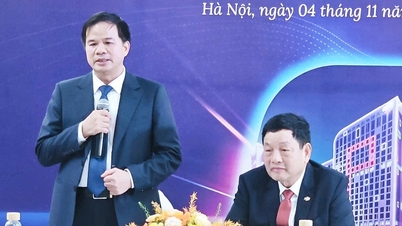

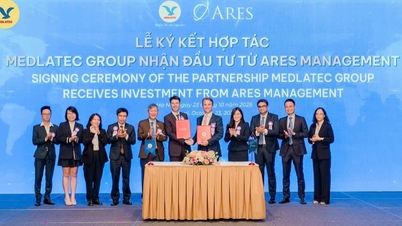








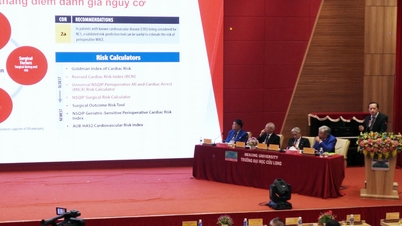



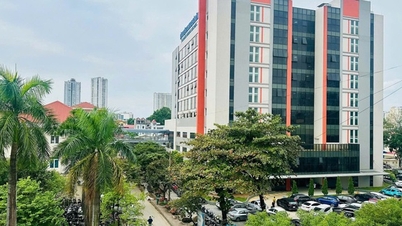
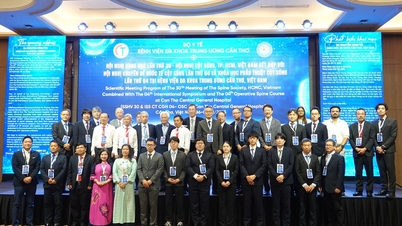













![[Photo] "Ship graveyard" on Xuan Dai Bay](https://vphoto.vietnam.vn/thumb/1200x675/vietnam/resource/IMAGE/2025/11/08/1762577162805_ndo_br_tb5-jpg.webp)







![[Video] Hue Monuments reopen to welcome visitors](https://vphoto.vietnam.vn/thumb/402x226/vietnam/resource/IMAGE/2025/11/05/1762301089171_dung01-05-43-09still013-jpg.webp)
































































Comment (0)